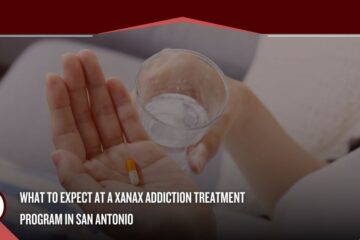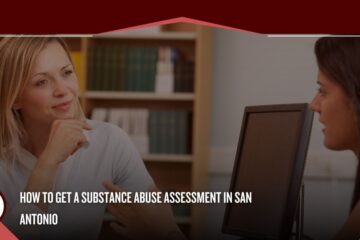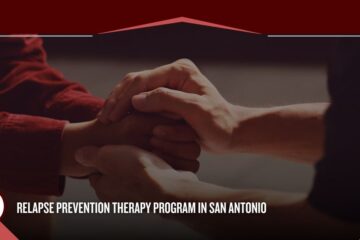Finding co-occurring disorder treatment in San Antonio can be essential to manage addiction and mental health disorders and begin your recovery. When you understand co-occurring disorders, meaning the presence of mental health and substance use disorders simultaneously, you’re better positioned to find an appropriate treatment program or help a loved one to do so.
What Are Co-Occurring Disorders?
Co-occurring disorders are also called dual diagnosis. The terms refer to a condition where you simultaneously are experiencing mental health and substance use disorders. It’s a complicated situation, particularly in terms of treatment, because each disorder can interact with the other, making symptoms and treatment more complex.
Co-occurring disorders can include any combination of mental and substance use disorders.[1] Common mental health conditions occurring with addiction can consist of anxiety, depression, bipolar disorder and post-traumatic stress disorder (PTSD), among others. Substance use disorders can involve illegal drugs, alcohol or prescription medicines.
Having both a psychological and substance use disorder can create a cyclical relationship where each condition affects both the course and outcome of the other. Up to 21.5 million Americans have a co-occurring disorder.[1]
You could use drugs or alcohol, for example, to self-medicate and alleviate symptoms, or conversely, substance abuse can trigger or make worse mental health symptoms.
Diagnosing co-occurring disorders presents its own set of challenges because the symptoms tend to overlap. For an accurate diagnosis, professionals trained in recognizing and treating both must do a comprehensive assessment.
The Risks of Untreated Co-Occurring Disorders
When you have untreated co-occurring disorders, it can lead to effects on your mental, physical and social health.[2] Some of the risks include:
- Worsening mental health: When you don’t have appropriate treatment, it can make mental health symptoms escalate, leading to increased severity. When mental health symptoms get worse, it can also raise the risk of self-harm or suicide.
- Increased substance use: If you have an untreated co-occurring disorder, your substance use can become a way to self-medicate or deal with your mental health symptoms that aren’t being treated. Substance use can lead to addiction, overdose and health problems like brain and liver damage.
- Social consequences: Co-occurring disorders can worsen social functioning, negatively impact relationships, lead to isolation and make maintaining a job or school difficult. When you’re socially isolated, that can, in turn, make mental health and substance use worse.
- Legal issues: There’s a greater risk of being involved in illegal activities. This could stem from substance use, like DUI or having a controlled substance, or it could be a consequence of having impaired judgment.
- Physical health complications: Co-occurring disorders can lead you to neglect your physical health, causing new issues or worsening current chronic conditions. Then, when your physical health is poorly managed, it can make your treatment more complicated for both psychiatric and substance use disorders.
- Treatment complications: When you have untreated co-occurring disorders, it can make treatment more complex for either issue independently. As an example, there are some medicines used to treat mental health disorders that can have interactions with substances, leading to adverse side effects or ineffective treatment outcomes.
- Higher hospitalization rates: Because of the complexity of co-occurring disorders, you could face more frequent hospitalizations, visits to the emergency room and higher healthcare costs overall.[3]
Treatment for Co-Occurring Disorders
Treatment for co-occurring disorders involves an integrated approach to address all disorders at the same time. A holistic treatment approach is necessary because only treating one part of a dual diagnosis can continue to cause the untreated condition to worsen the other.
Co-occurring disorder treatment in San Antonio should include the following elements:
- Integrated treatment: As mentioned, integrated approaches are a cornerstone to treating co-occurring disorders. It involves coordinating substance abuse and mental health interventions for a seamless approach to address both issues together instead of in isolation from one another.
- Personalized care: Dual diagnosis treatment should be tailored for individual needs, considering factors including the types of disorders, symptom severity and life circumstances.
- Medication management: Appropriate medicines can be used for treating mental health disorders and also some withdrawal symptoms and cravings associated with addiction and substance dependence.
- Psychotherapy: Different therapeutic modalities are used to treat co-occurring disorders. Cognitive-behavioral therapy (CBT) helps you develop coping strategies for dealing with triggers and changing maladaptive thoughts and behaviors. Other approaches include motivational interviewing, dialectical behavior therapy and trauma-informed therapies.
- Peer support: Support groups like 12-step programs and group therapy provide needed peer support and encouragement and facilitate discussions on recovery from substance use and mental health perspectives.
- Case management: As part of dual diagnosis treatment, case managers may help you as you navigate the healthcare system, get housing and find employment. They can also connect you with community resources, facilitating a stable environment for recovery.
- Relapse prevention and education: Learning about the nature of mental and substance use disorders can help empower you to manage them. Relapse prevention strategies are also needed to help you recognize warning signs of relapse, maintain your treatment plan and build coping mechanisms.
- Family therapy and support: Family members involved in the treatment process can improve outcomes by providing additional support and helping family members understand co-occurring disorders and their complexities.
- Long-term support: A treatment program should include long-term follow-up to ensure your needs are continuously supported, even as they might change over time.
- Multidisciplinary treatment team: Treatment for co-occurring disorders usually involves a multidisciplinary team of professional psychiatrists, addiction counselors, psychologists and more. The team works together to ensure treatment addresses all aspects of your health and wellness.
Dual diagnosis treatment is challenging but can also be highly effective when approached with an integrated, comprehensive strategy to address the interplay between substance abuse and mental health.
Treatment for Co-Occurring Disorders in San Antonio
At Alamo Behavioral Health, we are a leading provider of co-occurring disorder treatment in San Antonio. We’re committed to providing specialized care addressing both mental and substance use disorders through a patient-centered approach. If you or a loved one is struggling with a co-occurring diagnosis, don’t wait to seek help. Reach out to Alamo Behavioral Health today.
References:
- Substance Abuse and Mental Health Services Administration (SAMHSA): Co-Occurring Disorders and Other Health Conditions
- National Institutes of Health (NIH): Substance Use and Co-Occurring Mental Disorders
- Centers for Disease Control and Prevention (CDC): National Hospital Care Survey Demonstration Projects: Characteristics and Mortality Outcomes of Opioid-involved Hospital Encounters With Co-occurring Disorders





